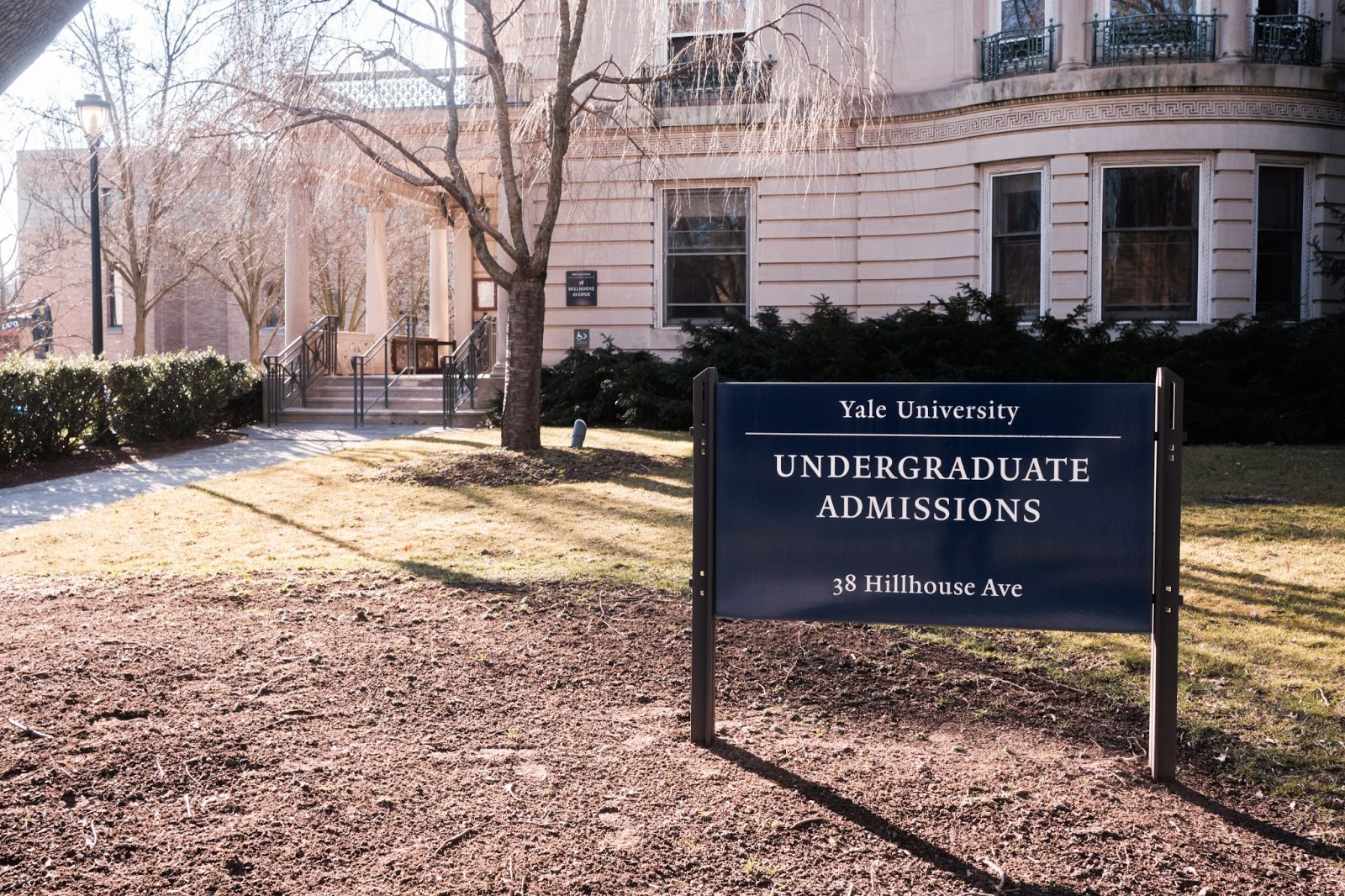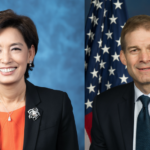Yale student groups may act as intervenors in affirmative action case
Hillel Student Board members say that the NAACP Legal Defense Fund is building a coalition of Yale student groups to intervene in Students For Fair Admissions’ lawsuit regarding Yale’s affirmative action practices. So far, Yale Hillel and the Black Student Alliance at Yale plan to get involved.

Lukas Flippo, Photo Editor
Emails from Hillel Student Board members circulated to all students involved in the Joseph Slifka Center for Jewish Life revealed ongoing efforts by the NAACP Legal Defense Fund to engage Yale student groups in Students For Fair Admissions’ lawsuit against Yale.
On May 4, the co-presidents of the HSB — the student-led governing body within Slifka — wrote an email to the Yale Hillel panlist, containing 466 students, titled “Should Hillel Join a Lawsuit?” The email shared that the LDF had approached Yale Hillel, as well as “a number of Yale undergraduate student organizations,” about applying to be intervenors in the SFFA case. SFFA — an anti-affirmative action group that also serves as the plaintiff in the high-profile admissions lawsuit against Harvard University — sued Yale in February 2021, alleging that Yale discriminates against white and Asian American applicants in its college admissions process.
By obtaining the legal status of “intervenor” in the SFFA case, Yale Hillel and other Yale student groups would formally enter as parties in the lawsuit, and would make the claim that they would be harmed should SFFA win the case and affirmative action at Yale was eliminated. The LDF declined the News’ request to comment on the matter. As of May 11, no parties have submitted an official petition to intervene in the case.
On May 7, Yale submitted a petition to hold the case until the Supreme Court decides whether to hear the SFFA v. President And Fellows Of Harvard College case — and, should the Supreme Court choose to hear the Harvard case, to further hold the Yale case until the Supreme Court issues a ruling. The Connecticut District Court judge has yet to rule on Yale’s petition.
Both HSB and the Black Student Alliance at Yale confirmed to the News that they had been asked by the LDF to serve as intervenors in the case, and that they are planning to do so. According to a second email from HSB sent on May 6, the LDF approached 10 other Yale and non-Yale organizations about applying as intervenors, one of which declined to comment and the rest of which did not respond to requests for comment.
Nina Todd ’22, one of the BSAY co-presidents, referred the News to a statement that BSAY released regarding the United States Department of Justice’s lawsuit against Yale in fall 2020, which has since been dropped. Todd said that BSAY decided to engage in the SFFA lawsuit for the same reasons that they opposed the DOJ lawsuit.
“To participate in a color-blind admissions process … is to discredit the experiences that make academic success on par with other races systematically more difficult for Black students,” the BSAY statement read. “This makes the Black educational experience materially more challenging. Though Black students at Yale are not surprised at this attack on affirmative action, we are outraged nonetheless. Meritocratic college admissions can only exist with the consideration of race; the history of our country makes it so.”
Members of HSB announced their decision in a Monday email to the same panlist. After a week of Hillel-wide deliberation, the board voted to apply to be intervenors in the case. In their reasoning for intervening, HSB referenced SFFA’s complaint, in which SFFA alleged that Yale’s affirmative action policies are similar to past quota systems that were historically used to limit the number of Jewish students at Yale and other institutions.
“There have been extensive conversations over what intervention would mean for our community,” the board wrote in the email. “Ultimately, our decision to intervene is born out of a refusal to allow Jewish history to be weaponized against students of color and an assertion of the value our community places on racial diversity. We also hope that our participation in the lawsuit will strengthen our bonds with an array of other student organizations.”
David Rosen, a lecturer at Yale Law School who specializes in complex individual and civil rights cases, told the News that parties with intervenor status have more of an ability to participate in the factual developments of a trial than do parties who have the more common “amicus curiae,” or “friend of the court” designation. Depending on what a judge allows, intervenors may be able to call their own witnesses and examine or cross examine other witnesses.
Rosen said that in complex cases like SFFA v. Yale, which could have ramifications beyond the individual parties involved, it is “pretty common” for outside groups to want to be involved as intervenors. It is slightly less common for students or student groups to serve as intervenors, Rosen said.
“It’s not obvious that this would happen,” Rosen said. “It doesn’t happen all the time. But I’m sure it happens at least from time to time. It’s neither inevitable or far out — somewhere in between.”
In July 2018, the LDF filed to allow 21 Harvard student and alumni organizations to serve as amici curiae — not as intervenors — in the SFFA v. President And Fellows Of Harvard College case. In August 2018, the LDF filed to allow four more Harvard organizations to join as amici curiae. Four individuals from these organizations, represented by the LDF, were granted permission to testify during the trial in fall 2018.
In an email sent out to the Hillel panlist last week, the HSB co-presidents shared that the 11 additional organizations asked by the LDF to serve as intervenors in the Yale case include Black Student Alliance at Yale; IntegrateNYC; Montgomery County for Change; Asian American Students Alliance; Alliance for Southeast Asian Students; Middle East, North Africa and Southeast Asian Students Association; Movimiento Estudiantil Chicano de Aztlán; Dwight Hall; Coalition Against Racism in Education; Association of Asian American Yale Alumni and Yale Alumni Nonprofit Alliance. The AAAYA declined to comment, while the nine other groups aside from BSAY did not respond.
In making its decision to intervene, Yale Hillel turned to all of its community members at Yale to hear their opinions. HSB members sent out a survey and held a virtual town hall leading up to the board’s Sunday vote on the matter, which required a two-thirds majority in order to intervene.
Prior to the vote, two former HSB members — Daniella Shear ’24 and Madison Hahamy ’24, who also serves as a staff reporter at the News — co-authored a petition calling on Yale Hillel to serve as intervenors in the case. The petition asserted that it is imperative that Hillel intervene as a way to stand in solidarity with fellow student groups and to respond to SFFA’s complaint relating past Jewish quotas to affirmative action — an equivalence that the petitioners deemed an “appropriation of Jewish history for their own benefit.”
The petition garnered 80 signatures, including 11 from former HSB members, including Shear and Hahamy.
“Intervening would send the clear message that a loss of affirmative action would harm us as individuals, as members of Yale Hillel, and as students in the larger campus community,” the petition read. “We understand that this is a controversial topic … But this decision is not complicated. It’s not a gray area, and it’s not political. The discussions we have had, the statements we’ve created, the money we’ve donated, means nothing if, when we are asked to act and stand in solidarity with our fellow students, we choose not to.”
In an email to the News, SFFA president Edward Blum responded to students’ criticism by referring the News to an amicus brief filed in the SFFA v. Harvard case by The Louis D. Brandeis Center for Human Rights Under Law and the Silicon Valley Chinese Association Foundation. The amicus brief outlined the alleged similarities between Harvard’s quotas for Jewish applicants in the 1920s and 1930s and Harvard’s admissions practices toward Asian American applicants today.
In the email announcing Yale Hillel’s decision to intervene, HSB shared that the next step in the process is to draft a statement to the court, in collaboration with the LDF, to apply for intervenor status. The statement can only be submitted once Yale formally submits an answer to the SFFA lawsuit.
SFFA is currently engaged in similar lawsuits against Harvard, the University of North Carolina and the University of Texas.
Correction, May 12: This article has been updated to reflect that it is Yale Hillel, the student group within Slifka, that plans to sign on as intervenors, rather than the entire Slifka organization.









